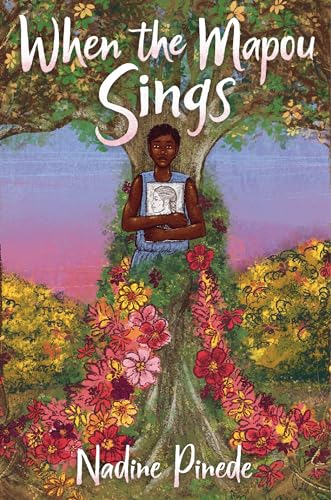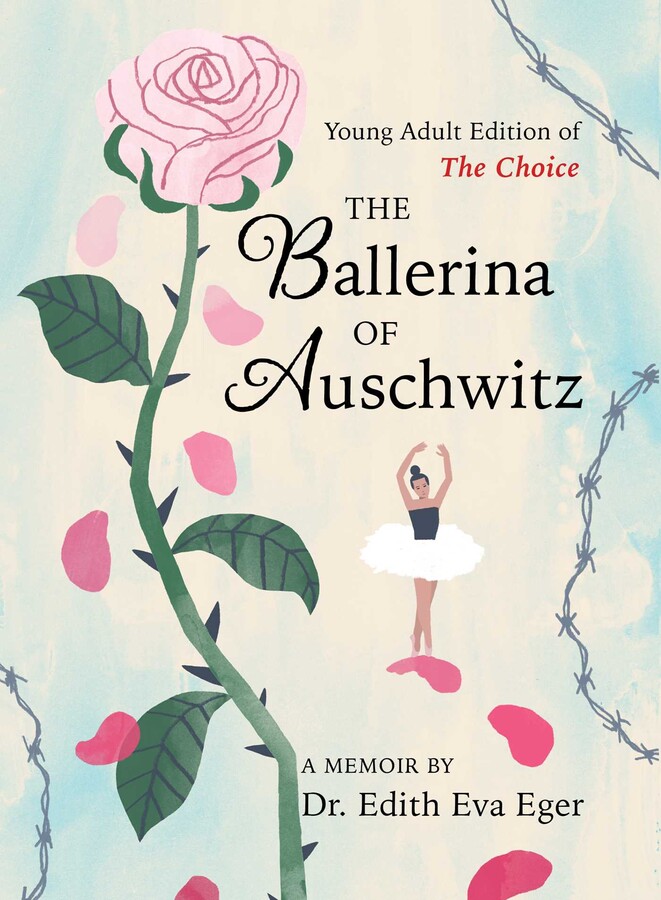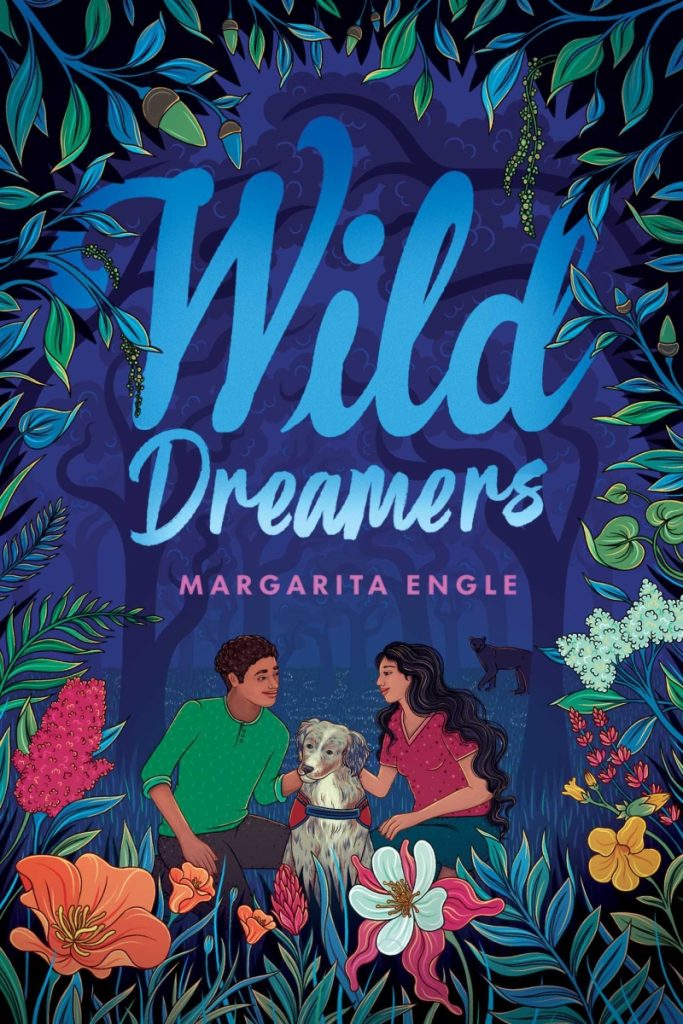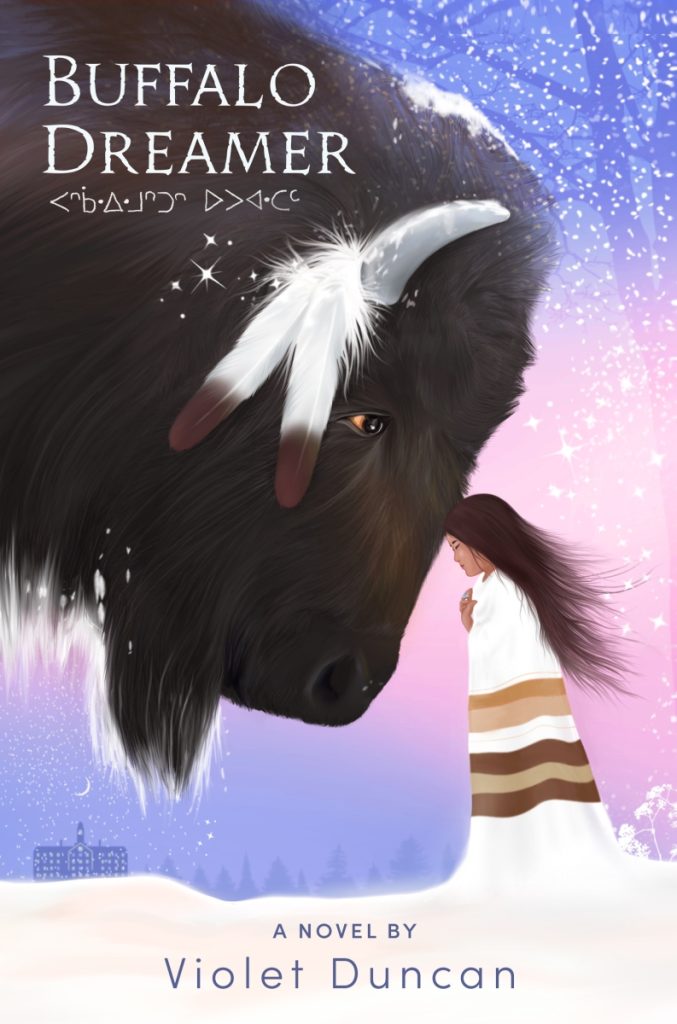From 1879 Mississippi, Lettie and her impoverished Black family set out for Nebraska in a covered wagon, part of the westward migration in “One Big Open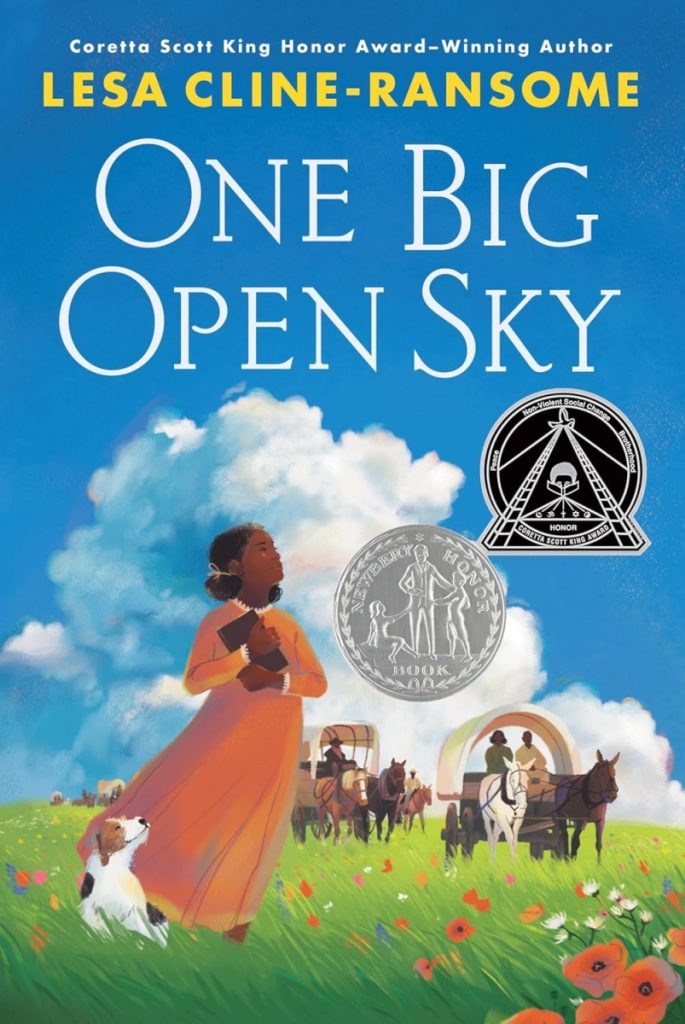 Sky” (Holiday House 2024) by Lesa Cline-Ransome. Her father made the decision to go, as was so often the norm for homesteaders, but Lettie’s mother Sylvia must decide on and prepare the provisions and care for the family of five along the way, even if she doesn’t want to take the journey.
Sky” (Holiday House 2024) by Lesa Cline-Ransome. Her father made the decision to go, as was so often the norm for homesteaders, but Lettie’s mother Sylvia must decide on and prepare the provisions and care for the family of five along the way, even if she doesn’t want to take the journey.
Throughout the story, we see what’s different for Black migrants and what is probably the same for white folk. The men are in charge, but are they really? Where does the strength truly lie?
The story is told in the voices of three women starting with preteen Lettie. Lettie says, “There was the story before we left/ and the story after/ but the story in between/ is the part that’s the hardest.” The family suffers heart breaking hardships on their trip, as almost every family in the age of Manifest Destiny did.
There is discrimination against their all-Black group. They wait, with their covered wagons, for a scheduled ship to take them part of the distance up the Mississippi River, which will relieve them of having to walk every single step of the way.
Sylvia, says, “…to see/ the hurt/ of folks standing on the banks/ holding all they had/ hopes/ and dreams/ only to have them/ left behind/ when the ships came again/ and didn’t stop”. The ships never stop so they set out on foot. White men try to steal their mules and oxen, so they have to fight them off to save their families.
The third voice is Philomena’s. She is a strong young woman and an orphan, who is traveling alone to take a position as a teacher in Nebraska. Lettie writes an account of the journey and keeps track of what has been spent. Philomena, not that much older than Lettie, and a teacher, can look over her shoulder and help her school-learning. Philomena does the work of a man and becomes essential to the family, and they to her.
The story is not without sweet romance. A member of the group, Beau, fancies Philomena who is oblivious, until Sylvia sets her straight.
Lettie’s young brothers go out with the father, Thomas, and the men to hunt and fish but usually come back having gathered berries and plants, and only occasionally a rabbit. There are places along the way where supplies can be bought, but Lettie’s family has run very low on funds. Thomas, we realize, wants to be a leader, but makes irresponsible decisions which endanger everyone. And still the womenfolk must back him up.
Lettie loves her father deeply but is beginning to see his flaws. Lettie also notes that women cannot vote, but clearly the women in this story are towers of strength and intelligence.
Of course, there are the raging rivers that all pioneers had to cross and those are alarmingly dangerous.
This wonderful book won the Coretta Scott King Award as well as a Newbery Honor this last year, is a fast, fascinating, and insightful read.
Patricia Hruby Powell is the author of the award-winning books: Josephine; Lift As You Climb; Loving vs Virginia; and Struttin’ With Some Barbecue all signed and for sale at Jane Addams bookstore. Her forthcoming books are about women’s suffrage, Martha Graham, and Ella Fitzgerald, as well as waterfowl. talesforallages.com
